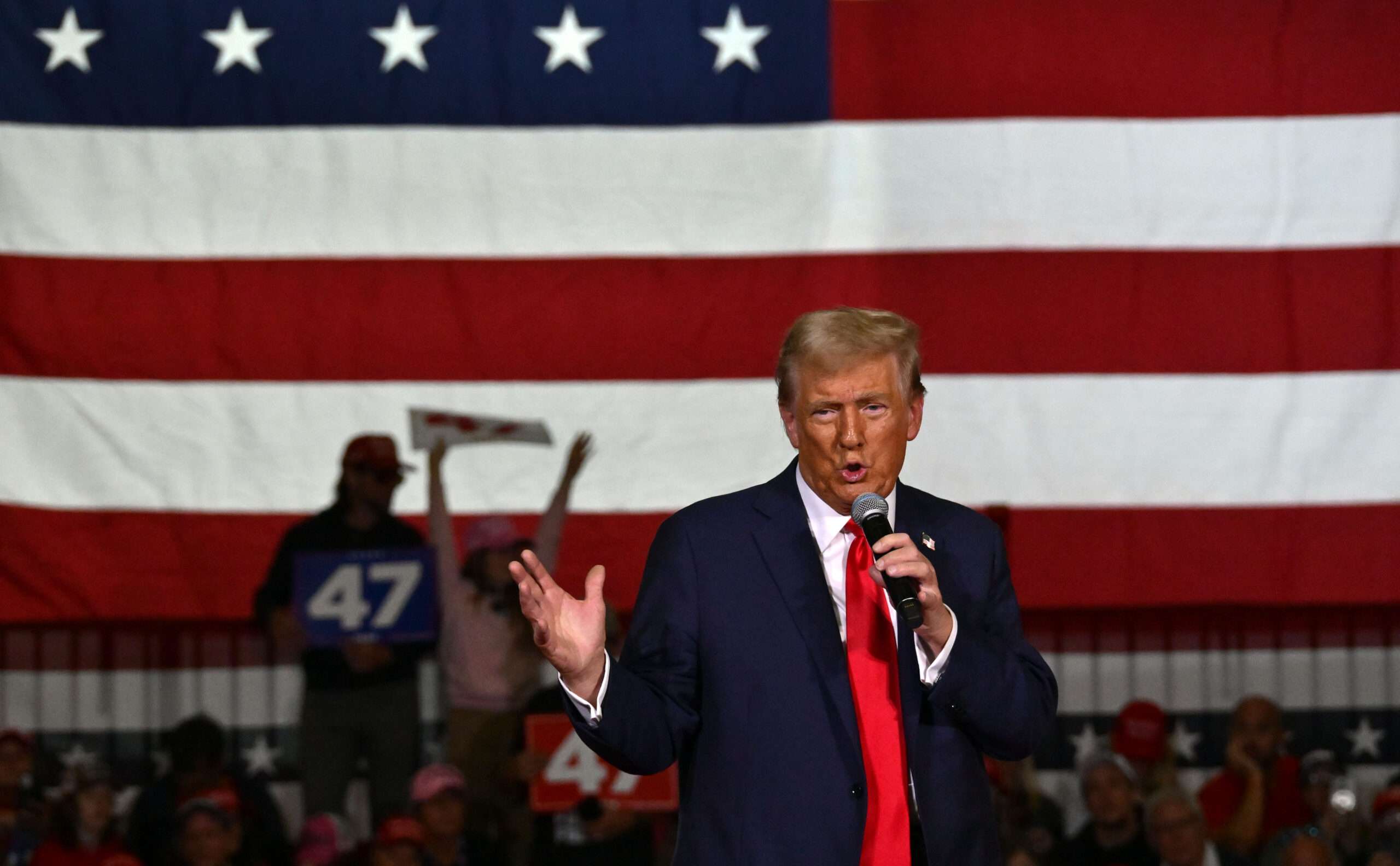- Research-Backed Ways To Address Burnout, SoftBank’s New U.S. Investment And More
- GT Wings bags $1.3M in new investment round
- Investment Advisers to Surpass Hedge Funds as Top Holders of Bitcoin (BTC) ETFs Next Year: CF Benchmarks
- bit.bio raises $30 million led by M&G Investments
- Foreign investment in Israel up 40% in 2023, thanks to one deal
President-elect Donald Trump’s proposed tariffs would result in higher prices, lower economic growth, less investment in the United States, reduced productivity by American workers, and fewer exports.
You are viewing: Trump’s tariffs will shrink the economy and reduce investment, CBO says
On the other hand, they would marginally reduce the federal budget deficit.
Those are the trade-offs presented in a Congressional Budget Office (CBO) report analyzing Trump’s campaign trail promises to slap higher taxes on just about everything that Americans buy from abroad—with extra high taxes on goods imported from China. The CBO’s report echoes findings from several non-governmental reviews of Trump’s agenda, but it represents the first time that a federal entity has outlined the trade-offs involved.
And those trade-offs skew heavily towards costs, rather than benefits.
See more : Romgaz extends Iernut power plant investment deadline By Investing.com
An increase in tariffs of 10 percent on all imports would reduce America’s gross domestic product (GDP) by about 0.3 percent, while 60 percent tariffs on all imports from China would knock GDP down by another 0.3 percent, the CBO projects.
Meanwhile, the tariffs would “make consumer goods and capital goods more expensive, thereby reducing the purchasing power of U.S. consumers and businesses,” the CBO found. The productivity of American businesses would decline due to “limiting competition from imports and causing resources to be used less efficiently than they otherwise would have been used.”
The higher tariffs would lower the budget deficit by about $2.7 trillion over the next 10 years, the CBO also estimated. In other words, American consumers would be paying $2.7 trillion more in federal taxes over the next 10 years if Trump’s tariff plans are implemented—regardless of whatever other changes to the federal tax code the incoming Trump administration and Congress might implement this year.
Some of Trump’s allies see that bucket of possible tariff revenue as a way to offset other tax cuts.
“Doubtless, tariffs are a big part of the answer for extending the tax cuts,” Stephen Miran, Trump’s pick to chair the White House’s Council of Economic Advisers, wrote in a document published in November outlining a plan to “restructure the global trading system.”
See more : SoftBank CEO Son with Trump vows $100 billion investment in U.S.
It’s unclear whether Congress will go along with the idea of offsetting income tax cuts with tariff revenue. If that is how things go, the Trump administration will still be left with a confusing economic pitch: Use tariffs, which will plainly discourage economic growth, to offset tax cuts that are supposed to boost it.
Voters seem to be skeptical about that arrangement, even before any of the negative consequences hit their grocery bills and retirement portfolios. A nationwide Marquette University Law School poll published earlier this month found that just 26 percent of Americans believe tariffs will hurt the economy, while 46 percent believe higher taxes on imports will hurt. (Another 13 percent said tariffs would make no difference and 15 percent said they didn’t know.)
What do you call a supposedly populist policy that isn’t actually popular?
Trump will do whatever he wants, as usual, but Miran and the other economic advisors around the White House ought to keep in mind that Trump was elected because voters pinned the blame for inflation on the Biden administration. When Republicans take full control of government in January, they will do so on the back of a promise to lower prices and promote economic growth.
Tariffs are not the path to either outcome.
Source: https://magnacumlaude.store
Category: News

